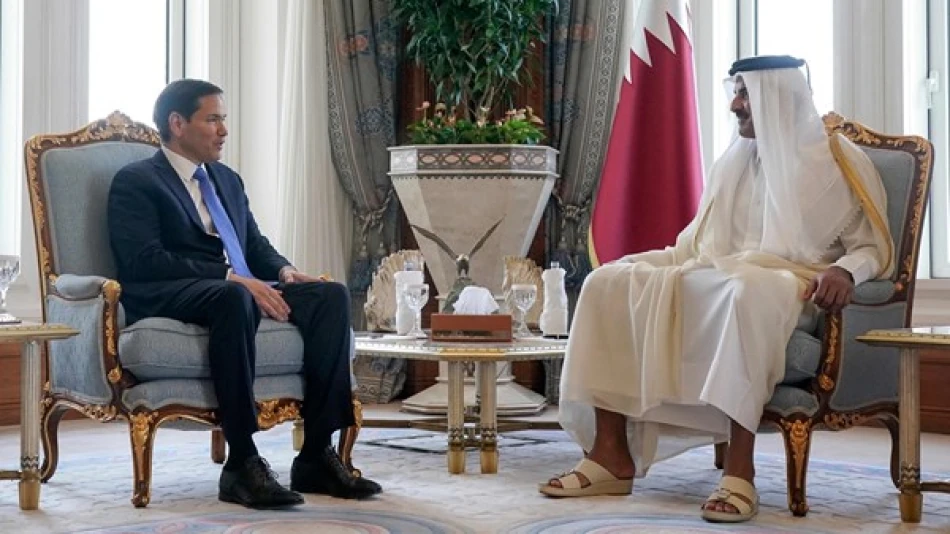
Qatar Emir and US Secretary of State Discuss Strengthening Defense Cooperation
US Doubles Down on Qatar Partnership Despite Israeli Tensions Over Gaza Mediation
US Secretary of State Marco Rubio traveled to Doha this week to reinforce America's security commitments to Qatar, following what sources describe as Israeli aggression against the Gulf state last week. The high-stakes diplomatic visit underscores Washington's recognition that Qatar remains indispensable to ending the Gaza war, even as regional tensions threaten the delicate mediation process.
Strategic Reassurance After Regional Escalation
Rubio's meetings with Emir Sheikh Tamim bin Hamad Al Thani and Prime Minister Sheikh Mohammed bin Abdulrahman Al Thani focused heavily on defense cooperation, according to Qatar's Foreign Ministry spokesman. The timing is significant—coming immediately after an emergency Arab-Islamic summit in Doha and what appears to be a serious deterioration in Israeli-Qatari relations.
The US State Department confirmed that Rubio "renewed strong American support for Qatar's security and sovereignty," language that diplomatic observers interpret as a direct response to recent Israeli actions. This represents a clear American choice to prioritize Qatar's mediation capabilities over Israeli objections to Doha's role.
The Irreplaceable Mediator Dilemma
Rubio's candid assessment reveals Washington's strategic calculation. Speaking to reporters en route to Doha, he emphasized that "if there is one country in the world that can help end this through negotiations, it is Qatar." This acknowledgment of Qatar's unique position reflects years of careful relationship-building with both Hamas and Israeli officials.
The Secretary of State's comments also hint at American concern that Qatar might step back from mediation following last week's incident. His plea for Qatar to "continue what they are doing" suggests the Biden administration—and now Trump administration—view Qatari mediation as irreplaceable, not merely convenient.
Regional Power Dynamics at Play
Qatar's mediation role has historically drawn criticism from Israel's right-wing politicians, who argue that Doha's relationship with Hamas legitimizes the group. However, the same channels that enable Qatar to host Hamas leaders also make it the only country capable of negotiating hostage releases and potential ceasefires.
The recent Israeli actions against Qatar—details of which remain unclear—appear to have tested this delicate balance. Rubio's swift diplomatic intervention suggests Washington fears losing its most effective intermediary in the conflict.
Implications for Gaza Negotiations
For investors and regional analysts, Rubio's visit signals that US-Qatar defense and economic partnerships will continue despite Israeli pressure. Qatar's hosting of the largest US military base in the Middle East at Al Udeid gives Doha significant leverage in these discussions.
The strengthened US backing also positions Qatar to weather potential Israeli retaliation for its mediation efforts. This could encourage more assertive Qatari diplomacy in future negotiations, knowing Washington will provide security guarantees.
Rubio's emphasis on Qatar as the singular mediator also suggests that alternative diplomatic channels—whether through Egypt, Saudi Arabia, or direct US-Israeli negotiations—have proven insufficient. This reality gives Qatar considerable influence over the pace and terms of any eventual resolution to the Gaza conflict.
Most Viewed News

 Layla Al Mansoori
Layla Al Mansoori






